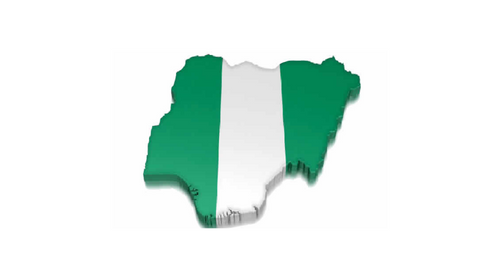
Let me start with an anecdote. During the 2015 campaign season, I had just turned a sophomore at Obafemi Awolowo University in Ife. On this happenstantial day, I was visiting a friend who lived off-campus. For our morning workout, we cycled from his place in Omole Estate to Mayfair, a popular intersection in the Ife-Ilesa thoroughfare. After we’d cycled a couple of hours, we relaxed at a roadside stall in Mayfair. Suddenly, we noticed a stampede. Roadside traders, okada riders and pedestrians were all running toward a motorcade. It didn’t take long to see why. Rauf Aregbesola, the governor of the state was in town staging a motor parade for his re-election campaign. With his torso appearing atop the partly retracted roof of the bus he was being driven in, he waved and smiled at the people of Ife.
After my friend and I had gotten over the surprise of seeing the governor’s convoy crawling in traffic a few meters from us, we noticed people bending down close to his motorcade to pick something from the ground. I thought it was cash. Against the advice of my friend, I decided to join them to see things for myself. My friend had feared that the gun-clutching security detail of Aregbesola could start shooting seeing how people were getting close to the governor’s convoy. I had the same fear but I went regardless. It turned out that Aregbesola’s entourage was throwing CDs to the crowd. I picked up two copies and went back immediately to the stall to join my friend. The CD was a four-track EP recorded by Saheed Osupa, a Fuji maestro, for Aregbesola’s re-election campaign. In a funny twist, I discovered both CDs were empty when I played them on my friend’s laptop. That experience made me realise that campaigns in Nigeria are nothing more than theatrical performances.
On September 28, Nigeria’s Independent National Electoral Commission officially kicked-off campaigns for the 2023 general elections. This came months after political parties had conducted their primaries to elect their standard-bearers. Though Nigeria practices a multi-party system, the Peoples Democratic Party and the All Progressives Congress are the two biggest parties that have dominated the scene since 1999 when democracy returned after decades of recurrent military coups.
This time, however, there is a new contender who is amassing a growing online and offline movement, especially among the youth. He is Peter Obi of the Labour Party. He has introduced what has been referred to as a “third-force” dynamic to the presidential race.
Before campaigns officially started, supporters of different parties staged matches across the country. And now that campaign has officially begun, we can expect more of these matches in the remaining four months before the election. Obi’s supporters (OBIdients) were the first to stage what they call One Million Match for Obi. For OBIdients, these matches serve a dual purpose; creating more publicity for their candidate and proving doubters wrong who say they have no structure compared to legacy parties.
As a candidate, the rule of thumb is to make consultations with different traditional and religious leaders from other parts of the country as a way to posture yourself as having pan-Nigerian support, especially given how heavily fractured and sensitive Nigerians are across ethnoreligious lines. When you visit other states, you appropriate their fashion and speak one or two phrases in their local language which your campaign team must have taught you.
Right from the point of debarkation at the airport, every wave and smile counts in the optics of things. Usually, your party’s chapter in that state would welcome you with a cheering crowd of excited supporters donned in similar clothing bearing your picture and/or party logo. Percussionists slap their drums energetically and dancers (usually women) vibrate their behinds with fervour. You then go ahead to shake hands with party chieftains lined up in a row while cameramen compete to get a vantage point. I should add that you get to experience this superstar treatment only if you belong to any of the two legacy parties that have the money and membership to pull it off.
But all of that is a foretaste of the shindig that usually characterises campaign rallies in Nigeria. Usually held in open-air venues like football stadia, campaign rallies tend to be disorganised and difficult to manage given the sheer magnitude of attendees. An ensemble of Juju, Fuji or Highlife band keeps the mood alive with percussion-heavy beats overlaid with a call-and-response melody. You’ll find traditional rulers and chieftains dressed to the nines in their royal attires, given special seats. Their presence is a tacit cultural imprimatur to the candidacy of the aspirant who has come cap in hand seeking their support.
Rallies are a herculean task for the MC to moderate. The MC faces the gruelling tasks of quietening the boisterous audience; checking the impudent band from interjecting the proceeding every minute with their garrulous drums; or stopping dance troops from taking more than their allotted time. The compere is also a master in the art of sycophancy and they display this through exaggerated and prolix introductions when inviting various speakers to address the crowd. Of course, the best panegyric introduction is saved for the last; the standard bearer, when it’s their time to mount the rostrum to speak nineteen to the dozen on their campaign promises. Usually, the aspirant never explains in detail how they intend to achieve these promises. If you are oratorically gifted to code switch from Pidgin English to Standard English just promise the crowd heaven on earth, though they’ve heard everything before. If you want to totally win their hearts, speak a couple of phrases in their language.
But that’s not all there is to organise a successful campaign in Nigeria. In 2015, Stomach Infrastructure became the latest coinage introduced into the Nigerian political lexicon. The neologist was Ayodele Fayose, then governor of Ekiti. He used his linguistic wit to describe an age-long campaign practice in Nigeria which includes the gifting of food items to a hungry and impoverished public in anticipated exchange for their votes. Political parties distribute anything from chicken, bottles of oil, bags of rice or loaves of bread all bearing the names and pictures of their candidates. Though vote buying is a crime according to Nigerian electoral laws, Stomach Infrastructure technically isn’t. On the surface, stomach infrastructure looks like philanthropy. It doesn’t seem wrong for a political party to distribute food items to members of the public especially when one thinks about how Nigeria’s poverty index keeps rising. Surely, with a failing economy, there are people who need these bags of rice. The deed may be philanthropic but the intent is self-serving.
The thing with stomach infrastructure is the people expect it from political parties. To them, they have little to no expectations from candidates when they get elected. They are all corrupt anyway, so the reasoning goes. Stomach infrastructure is the only thing close to the dividends of democracy and the people make sure they demand it during campaigns. If a candidate refuses to give the people stomach infrastructure perhaps based on their radical ideology or lack of funding, their chances of winning become highly unlikely.
The closest to stomach infrastructure is vote buying. As said earlier, it is a criminal offence. But even so, the practice has continued for decades unabated. On election day, parties deploy agents to different polling units with wads of cash to give to voters. In hush tones, the agents proposition anything from N1,000 ($2.6) to N10,000 ($23). For instance, during the Ekiti governorship election, which was held on June 18 this year, there were reports of vote buying in various polling units. Party agents paid voters between N5,000 and N10,000 according to election observers and media reports.
Interestingly, Obi’s candidacy gained traction among young Nigerians mainly due to his famed frugality when he was governor of Anambra State. Videos of his interviews and speeches in which he talked about how he reduced the cost of governance are viral on social media. During their rallies, his supporters often sloganise “We no dey give shishi” (we are not giving any money) which serves as a counterpoint to the culture of vote buying. They say their motivation for supporting him is not based on stomach infrastructure or monetary inducement but on their desire to rescue Nigeria from bad leadership. Two recent polls by Bloomberg and Anap Foundation, an NGO, favour Obi ahead of Atiku Abubakar, a former vice president, and Bola Ahmed Tinubu, a former senator and governor, both of whom are the respective candidates of PDP and APC.
In the remaining four months before the election, one can only expect more activities. More radio jingles, TV and billboard adverts. Aspirants will make more consultations with different groups across the country. Some of them will throw subtle or crude jabs to defame one another. Some of them will make attempts to show that they identify with the struggles of the masses like Adams Oshiomole who was once seen buying roadside roasted corn. There will be more dancing, more music. Members of the public will look forward to getting their share of stomach infrastructure. It is an all-too-familiar scene; a festival of theatrics.
- Olayemi, the host of the Disaffected Nigerian YouTube channel, writes via [email protected]





